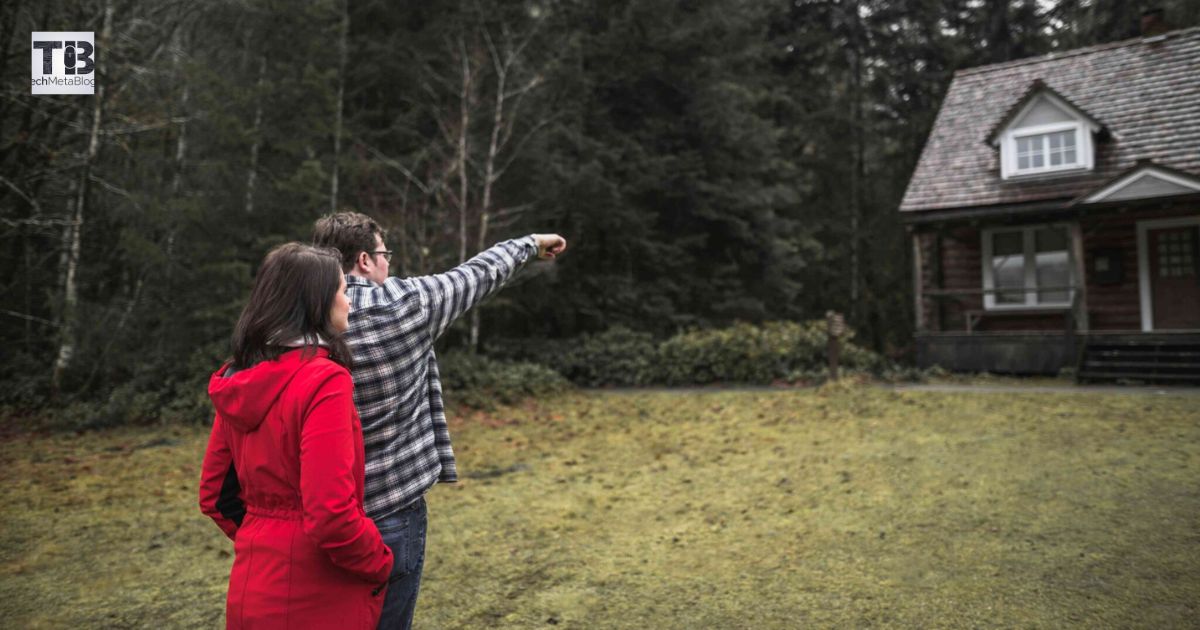In the vast, tranquil landscapes of Maine, a remarkable narrative of privacy and intentional living unfolds through the lens of Discreet Tilly 42.
Her story transcends mere anonymity, representing a profound philosophy of personal sovereignty in an era of unprecedented digital exposure.
Why privacy matters today becomes more than a question—it’s a lifestyle philosophy that challenges our contemporary understanding of connection and personal boundaries.
Why Maine?
Maine’s geographical essence makes it a sanctuary for those seeking refuge from constant digital intrusion.
The state’s sprawling wilderness, characterized by dense forests, rugged coastlines, and isolated communities, provides a natural backdrop for individuals committed to maintaining personal privacy. Its geographical characteristics offer more than scenic beauty—they represent a lifestyle of intentional solitude.
| Maine Privacy Characteristics | Description |
| Geographical Isolation | Vast wilderness areas |
| Low Population Density | Fewer social interactions |
| Natural Barriers | Forests and coastal regions |
| Independent Culture | Respect for personal space |
Tilly’s Approach to Privacy
For Tilly, privacy isn’t a passive concept but an active, strategic approach to living. Digital privacy strategies are meticulously woven into her daily existence.
She understands that true discretion involves creating intentional barriers that protect personal space, mental equilibrium, and individual autonomy.
The Importance of Privacy in the Digital Age

Digital Exposure vs. Personal Freedom
Contemporary society presents a paradoxical landscape where connectivity often compromises personal freedom.
Social media overexposure has transformed privacy from a right into a consciously defended territory.
Tilly’s approach represents a deliberate resistance against constant digital surveillance, challenging the notion that constant connectivity is mandatory.
Privacy as a Form of Empowerment
Empowerment through privacy emerges as a revolutionary concept in Tilly’s worldview. By controlling her narrative and limiting external inputs, she maintains absolute agency over her life’s trajectory.
Privacy becomes not a defensive mechanism but a proactive strategy for personal growth and self-determination.
How to Live a More Discreet Life
Limit Your Social Media Use
Social media platforms represent potential minefields of personal information exposure. Implementing social media boundaries requires strategic, minimal engagement.
Consider reducing platform usage, establishing strict privacy settings, and becoming exceptionally selective about shared content.
Set Boundaries
Establishing personal boundaries transcends digital interactions. It involves a holistic approach to managing personal interactions, learning to articulate clear limits, and protecting individual emotional and mental space. Boundaries function as sophisticated filters rather than impenetrable walls.
Be Mindful of Your Online Presence
Every digital interaction generates a traceable footprint. Online presence management demands conscious, deliberate choices. Each post, share, or engagement requires thoughtful consideration, understanding its potential long-term implications.
Cultivate Close, Meaningful Relationships
Discretion doesn’t equate to isolation. Tilly’s philosophy emphasizes depth over breadth in relationships. By focusing on genuine connections with individuals who comprehend and respect personal values, she demonstrates the art of meaningful social interaction.
Find a Space for Solitude
Creating physical and mental sanctuaries for reflection represents a critical aspect of intentional living practices. Solitude isn’t loneliness but an opportunity for profound self-discovery, creativity, and personal restoration.
Lessons from Discreet Tilly’s Life

The Benefits of Solitude
Life in solitude in Maine offers unexpected benefits: enhanced mental clarity, heightened creativity, and deeper self-understanding. Tilly’s experiences illustrate how stepping away from constant stimulation can lead to remarkable personal insights.
Creating Boundaries for Better Mental Health
Prioritizing privacy becomes a sophisticated form of mental health maintenance. In an era of constant demands and digital overwhelm, discretion transforms into a powerful self-care strategy.
A Life of Intentional Choices
Every dimension of Tilly’s existence reflects deliberate, mindful decision-making. From geographical location to interpersonal interactions, she exemplifies the power of living privately in a connected world.
Conclusion
Discreet Tilly 42 from Maine exemplifies a profound approach to living in our hyperconnected world. Her life demonstrates that privacy is not about isolation, but about creating intentional spaces for authentic existence.
By strategically managing digital interactions, cultivating meaningful relationships, and prioritizing personal boundaries, individuals can reclaim their sense of autonomy.
The lessons from Tilly’s journey illuminate a path toward balanced living—where personal freedom coexists with mindful connectivity.
Ultimately, privacy becomes a powerful tool for self-preservation, mental well-being, and personal growth in an era of constant digital exposure.
Frequently Asked Questions About Discreet Living and Privacy
What is the primary goal of living a discreet life?
The primary goal is to maintain personal autonomy, protect mental well-being, and control one’s digital and personal narrative in an increasingly connected world.
How can I start reducing my digital footprint?
Begin by minimizing social media usage, adjusting privacy settings, being selective about shared content, and regularly auditing your online presence.
Is living privately the same as being antisocial?
No. Discreet living focuses on cultivating meaningful, quality relationships rather than avoiding social interactions entirely.
Why is Maine considered an ideal location for private living?
Maine offers vast wilderness, low population density, and a culture that inherently respects personal space and individual boundaries.
Can privacy be a form of empowerment?
Absolutely. By controlling personal information and limiting external influences, individuals can maintain greater agency over their lives and mental health.
How does solitude benefit mental health?
Solitude provides opportunities for self-reflection, creativity, stress reduction, and personal growth away from constant external stimuli.
What are the key strategies for maintaining digital privacy?
Key strategies include using strong passwords, enabling two-factor authentication, being cautious about sharing personal information, and regularly reviewing online accounts.
Can a minimalist lifestyle contribute to privacy?
Yes. Minimalism reduces unnecessary digital and physical clutter, helping individuals focus on what truly matters and maintain clearer personal boundaries.
How can I set better personal boundaries?
Learn to say no, communicate clearly about your limits, prioritize your well-being, and surround yourself with people who respect your personal space.
Is it possible to live privately in a digital age?
While challenging, it is possible by being intentional about your digital interactions, choosing platforms wisely, and maintaining a proactive approach to personal information management.

I’m Zoey Agca admin of this website.








